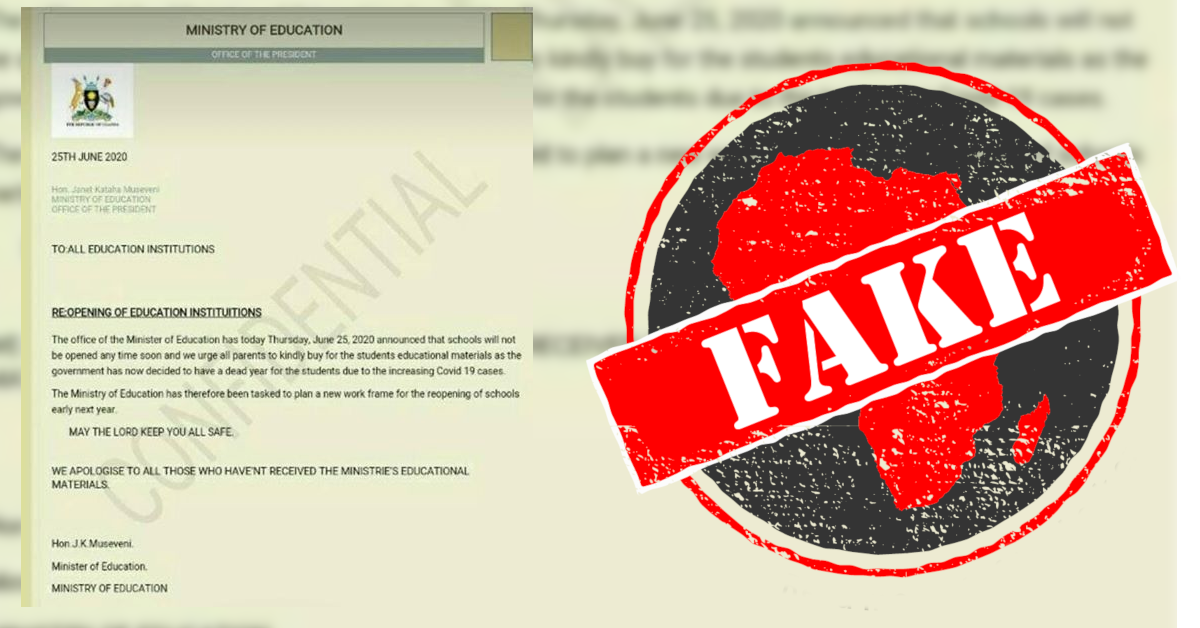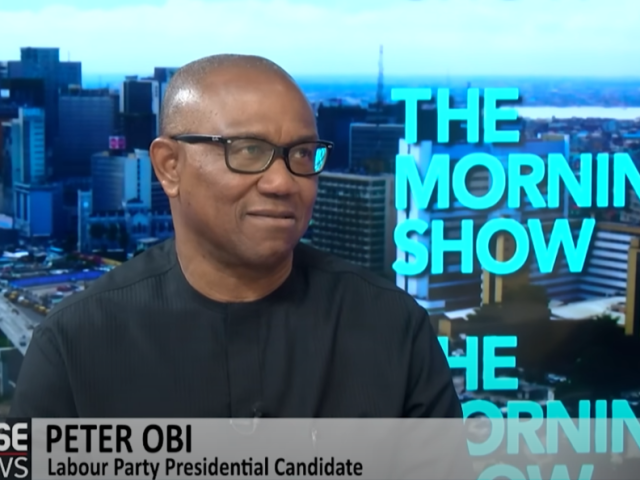Schools in Uganda will reopen in early 2021, according to a document posted on Facebook.
“The office of the Minister of Education has today Thursday, June 25, 2020 announced that schools will not be opened any time soon and we urge all parents to kindly buy for the students educational materials as the government has now decided to have a dead year for the students due to the increasing Covid-19 cases,” it says.
It adds that the ministry is working on a plan to reopen schools “early next year”.
The document has Uganda’s coat of arms and seems to be signed by education minister Janet Museveni.
As the Covid-19 pandemic spreads through East African countries, putting plans to reopen schools in jeopardy, has Uganda’s education minister really postponed the reopening of schools to early next year?

In a 22 June update on measures to contain the pandemic, Ugandan president Yoweri Museveni said schools would remain closed.
“As far as the educational institutions are concerned, nobody who cares about Uganda or our children is talking about re-opening them as of now,” he said. “It is just too risky.”
He made no announcement on when schools would be reopened.
And on 26 June Uganda’s education ministry posted the letter – stamped “FAKE” in red – on its verified Twitter account.
“#FakeNews: It has come to our attention that a document with information about reopening of institutions is making rounds online,” it tweeted. “This is fake! Kindly treat it with the contempt it deserves.” – Grace Gichuhi
“The office of the Minister of Education has today Thursday, June 25, 2020 announced that schools will not be opened any time soon and we urge all parents to kindly buy for the students educational materials as the government has now decided to have a dead year for the students due to the increasing Covid-19 cases,” it says.
It adds that the ministry is working on a plan to reopen schools “early next year”.
The document has Uganda’s coat of arms and seems to be signed by education minister Janet Museveni.
As the Covid-19 pandemic spreads through East African countries, putting plans to reopen schools in jeopardy, has Uganda’s education minister really postponed the reopening of schools to early next year?

President’s update
In a 22 June update on measures to contain the pandemic, Ugandan president Yoweri Museveni said schools would remain closed.
“As far as the educational institutions are concerned, nobody who cares about Uganda or our children is talking about re-opening them as of now,” he said. “It is just too risky.”
He made no announcement on when schools would be reopened.
‘This is fake!’
And on 26 June Uganda’s education ministry posted the letter – stamped “FAKE” in red – on its verified Twitter account.
“#FakeNews: It has come to our attention that a document with information about reopening of institutions is making rounds online,” it tweeted. “This is fake! Kindly treat it with the contempt it deserves.” – Grace Gichuhi
Republish our content for free
For publishers: what to do if your post is rated false
A fact-checker has rated your Facebook or Instagram post as “false”, “altered”, “partly false” or “missing context”. This could have serious consequences. What do you do?
Click on our guide for the steps you should follow.
Publishers guideAfrica Check teams up with Facebook
Africa Check is a partner in Meta's third-party fact-checking programme to help stop the spread of false information on social media.
The content we rate as “false” will be downgraded on Facebook and Instagram. This means fewer people will see it.
You can also help identify false information on Facebook. This guide explains how.



Add new comment